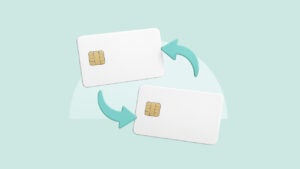An issuer closed my credit card account without notification. Why?




Key takeaways
- Credit card issuers are not required by law to provide advance notice before closing accounts.
- Accounts may be closed due to lack of usage, non-compliance with terms and conditions or changes in card terms that a cardholder doesn’t accept.
- Negotiating with the issuer may be an option to prevent or reverse an account closure.
Credit cardholders look to their cards as convenient and ready sources of financing. Imagine the surprise (and inconvenience), then, to have a credit card closed without notice.
If this has happens to you, stay calm. We’ll cover why issuers close accounts, what you should do in this situation and break down what happens to your credit card rewards in this scenario.
The hard truth is there’s no law requiring issuers to notify you in advance if they decide to close your credit card account.
The good news is that the Truth in Lending Act does require your card issuer to notify you of certain important changes to the terms and conditions of your card account. For instance, it must notify you at least 45 days before raising some fees or, in some cases, raising your card interest rate.
If your variable interest rate is based on an index, such as the prime rate, and the index goes up, your issuer does not have to notify you that your interest rate will rise as well. The issuer also doesn’t have to notify you ahead of your promotional interest period ending and the ongoing APR kicking in.
Why was my credit card closed without notice?
Sometimes a card issuer’s decision to close your account without notice has nothing to do with how you’ve managed your account — and sometimes it does.
Here are the most likely reasons a credit card company might close your account without notice.
1. You don’t use your card
If you carry multiple credit cards and favor some over others, it may be that you aren’t using one of the cards often enough.
Depending on your spending patterns and the rewards the card generates, it may be that you rarely turn to this card to fund your purchases. That sort of strategic spending is smart for you, but it isn’t in the best interest of the card issuer, particularly if the card doesn’t charge an annual fee. The issuer, after all, wants to generate business off your card in the form of interchange and other potential fees.
If you don’t use this card, your account remains inactive and doesn’t generate the revenue the issuer would receive were you to spend on the card. Therefore, to the issuer the card represents a potential risk but no revenue, so it may feel inclined to close the card all together.
2. You didn’t accept new terms
Another possible reason for an unexpected closure is that the issuer changed the terms of the card, and you didn’t accept them.
The Credit Card Accountability Responsibility and Disclosure (CARD) Act states that a card issuer must send you advance notice of significant changes, which could include a hike in late payment or cash advance fees, among other things. The issuer must give you 45 days notice and allow you to opt-out if you don’t accept the changes. If you choose to opt-out, though, the card issuer is free to close your account.
In some cases, such as when raising your minimum payment, the issuer is required to provide you the same advance notice, but doesn’t have to give you the option to opt-out. And when it comes to closing your account, the law doesn’t require advance notification at all.
3. You didn’t comply with card terms
Perhaps unsurprisingly, a card issuer can close your account without notice if you fail to adhere to the terms of the card. This includes following the rules of the card’s rewards program as well as making at least minimum payments on time and taking reasonable steps to prevent fraud.
If you stick to your end of the contract, you will remain in the card issuer’s good graces and not give it cause to unexpectedly close your account.
You aren’t off the hook for the card balance if your issuer closes your card. You’ll need to continue paying off the balance, but will be unable to make new purchases on the card.
4. Your circumstances change
Another reason an issuer might close your account is if your income or job situation changes. Many issuers prompt cardholders to update their income or personal information once a year or so. That new information could be used to offer you a higher credit limit, reduce your credit limit, present you with new card options or even lead to the issuer closing your card.
5. Your credit score dropped significantly
Life happens, and sometimes you may find yourself unable to make a payment on time or accumulating debt on your credit line. If this happens enough, you may see a substantial drop in your credit score.
Similarly, if your payment is 30 days late or more, your account may be marked as delinquent and reported to the three major credit bureaus. Repeated delinquent notices could lead your issuer to close your account.
6. The issuer discontinues your card
The card issuer could decide to stop supporting your card product, and all those who hold that particular card will be impacted. In this case, the issuer will likely switch you to a similar card rather than closing your account.
What should I do if an issuer closes my account?
Whatever the reason, if you didn’t want to close the account and hope to hold on to your card, your best bet is to negotiate with the issuer directly:
- Gather your most recent credit card statements and try to determine the most likely reason the issuer closed your account. Issuers aren’t obligated to tell you why they did, but sometimes will.
- Contact a representative from your credit card issuer. You can call the number on the back of your credit card.
- Tell them that you want to continue using your card and see what they can do for you.
What happens to my existing rewards?
As for any rewards you have on the card, whether you retain them after a card’s closing depends on the type of rewards and the issuer’s policies. If the rewards are issued by your card issuer, such as Chase Ultimate Rewards points or American Express Membership Rewards points, you will likely lose access to them. Sometimes the issuer will give you 30 days to use the rewards or cash them in after an account closure.
If the rewards are issued by another entity, such as miles issued by an airline when using a co-branded credit card, you will likely keep those miles since they’re tied to your frequent flyer account and not your credit card account.
How does an issuer closing my card account affect me?
Along with no longer being able to use your card, the biggest potential impact of having your card account closed by an issuer is on your credit score (often a negative impact). Whether an account is closed at your request or by an issuer without notification, your credit may be affected in a few key ways:
Your credit utilization may increase
When one of your card accounts closes, you’ll lose access to that line of credit. This means you’ll have less total credit available for purchases across your card accounts. For example, if you had three cards each with a $2,000 limit and then one of them was closed, your total available credit would drop from $6,000 to $4,000.
With less available credit, any balances you’re carrying and any purchases you make will represent a larger percentage of your available credit. In other words, you’ll be using more of your credit, giving you a higher credit utilization ratio.
Credit utilization is a key factor impacting your credit score, making up 30 percent of your total FICO score calculation. So, if one of your accounts is closed, you may see your score drop due to higher credit utilization.
The length of your credit history may shift
Depending on how recently you opened your card account, having that account closed could have a noticeable impact on the length of your credit history. Your credit history is both the age of your oldest and newest credit accounts as well as the average age of all your accounts.
In short, when it comes to your credit score, the longer your credit history, the better.
So, if the account is one of your oldest, having it closed will likely hurt your score. On the other hand, if the account is newer, closing it may not have as big of an impact on the length of your credit history.
While length of credit history only makes up 15 percent of your FICO score, it’s still a key factor to keep in mind if you’re facing an account closing.
Your credit mix may be disrupted
If the account was your only revolving credit account, having it closed will reduce the variety of credit types you have to manage, referred to as your credit mix.
Having a diverse mix of credit types, including both revolving credit and installment loans, helps demonstrate to lenders that you’re a responsible borrower who can successfully manage credit cards, personal loans, a mortgage and more. For your credit score, the more variety in your credit mix, the better.
With one less type of credit, your score may drop. However, credit mix only makes up 10 percent of your FICO score, so while it’s worth being aware of, it’s far from the most important factor.
The bottom line
A card issuer can close your credit card without advance notice. If you haven’t been using your card, or you violated the terms of your card account, that could lead the issuer to close it.
If you want to hold on to a certain card, you should plan to use it at least occasionally and stick to its terms and conditions. In the event an issuer closes an account you wish to keep using, be sure to call your issuer and discuss your options.
Why we ask for feedback Your feedback helps us improve our content and services. It takes less than a minute to complete.
Your responses are anonymous and will only be used for improving our website.





